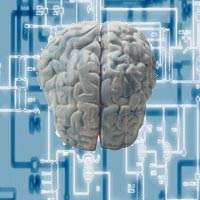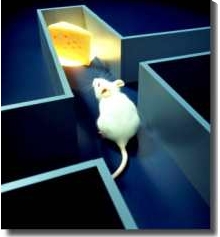Against the argument that we are living in a simulation
by Henry R. Sturman
In this article I argue against the argument that we are probably living in a computer simulation, because people with advanced technology will likely be able to simulate many more people in a computer than there are real people. Hence, the argument goes, the probability we are one of those simulated people is higher than the probability we are an unsimulated person. My critique is aimed at the argument as given in this article, a shorter version of which appears here.
I believe there are at least eight ways in which the argument (possibly) fails:
1. The assumption is that if people start simulating people, they will generally not tell the simulated people they are simulated people. But is that a valid assumption? If most people believe it is unethical to simulate people without telling them they are simulated, the argument fails. Hence, the fact that nobody told us that we are simulated is a case for thinking we might not be simulated.
2. Similarly, there is a lot of suffering in the world. If people simulating people were ethical they would not allow their simulated worlds to contain suffering. So again, the argument assumes that people simulating people are unethical and the validity of that assumption can be questioned.
3. It is striking that there is such a great deal of mathematical logic and consistency in the laws of nature. Such features are not necessary in a simulation. In a simulation there is no need for our heads to contain brains rather than green cheese, for example. And in a simulation we might as well have been given the option to magically move objects from A to B with the flash of a thought. Thus, the fact that no such magic or inconsistency exist is an argument for our world not being a simulation.
4. As the author admits, the argument requires acceptance of the assumption that the hardware doesn't matter for the arrisal of consciousness. I'm skeptical about that. If the biological structure of our brain is in fact a requirement for consciousness, then a computer which simulates the brain has no consciousness, and then the simulation argument fails. Except one could still argue that the space of the universe can contain more biological brains in vats (connected via wires to a computer simulating a world) than it has space for complete biological bodies. That would leave room for the argument that if people start putting brains in vats and simulating worlds for them, the probability is larger that you are a brain in a vat than a complete biological body in the real world.
5. As the author, in effect, admits there is doubt whether his calculations are correct. Maybe more rather than less calculating power is required to simulate a consciousness + environment than nature requires for a direct implementation of a conscious being. For example, suppose we build a very powerful computer, based on nanotechnology of very small detail. If we build such a computer within a simulated world, then for it to work properly all those small nanodetails would have to be simulated rather then that they are directly implemented physically. I would think that this only adds another layer of complexity, such that a computer simulating such a computer would actually have to be larger and more complex than the computer it's simulating. Similarly, if one emulates an Apple on a PC or vice versa, you also generally lose computer speed. This provides a case for turning the whole simulation argument on its head: because a simulation of consciousnessss + environment costs more calculation resources then a direct implementation, we can simulate fewer people than the universe can contain directly. Therefore, the probability we are a real person is larger than the probability we are a simulated person.
6. The validity of counter argument that if the simulation is no longer correct, the computer could simply change our memory content, is questionable. I believe that we can't reason anyway, unless we assume that our brains operate relatively correctly and there is no God in the background playing with our consciousness. However, if you do not make that assumption, then there is still no basis for accepting the simulation argument, for accepting any argument is only reasonable if we have faith in our ability to think straight. It's inconsistent to draw a conclusion based on our reasoning, while that very reasoning is based on the assumption that we can't trust our own reasoning.
7. But the fundamental error is that the whole argument is based on the application of a conclusion about our own world to another world about which we don't know anything. That is invalid. Even if all assumptions about computer power and motives about the people running simulations are correct, this only proves something about beings that we simulate ourselves. For the class of beings consisting of us plus the simulated beings it is correct to say that the probability one of them is simulated is greater than the probability that it is not. But, paradoxically, that's a conclusion only knowable to us, and not to the simulated beings. For it is only valid to apply this reasoning to our world and not to an imagined world above us. It's impossible for us to know or assume that the facts in our world, on which the whole simulation argument is based, are also true in a world above us. For example, any world above us might be a world in which all beings are already made with maximum efficiency, and so has more physical space for directly implemented beings than for simulated beings. In other worlds, the fatal flaw in the whole argument is that it hypothesizes a world above our world, while the very assumption that we are living in a simulation implies it is impossible for us to know anything about what such a world would be like and what would be the motives or actions of its inhabitants. The conclusion that we're probably living in a computer simulation immediately leads to the next conclusion that we can't trust the assumptions which led us to the first conclusion. Thus, the argument destroys itself.
8. The conclusion that we are living in a simulated world inside another world is a violation of Occam's razor.

Henry Sturman - Homepage
Henry Rudolf Sturman was born on February 8, 1966. He has a Masters degree in applied physics from the Technical University of Delft. He owns, Sturman Enterprises, which develops websites, software and database applications.
Email: henry@sturman.net





























































